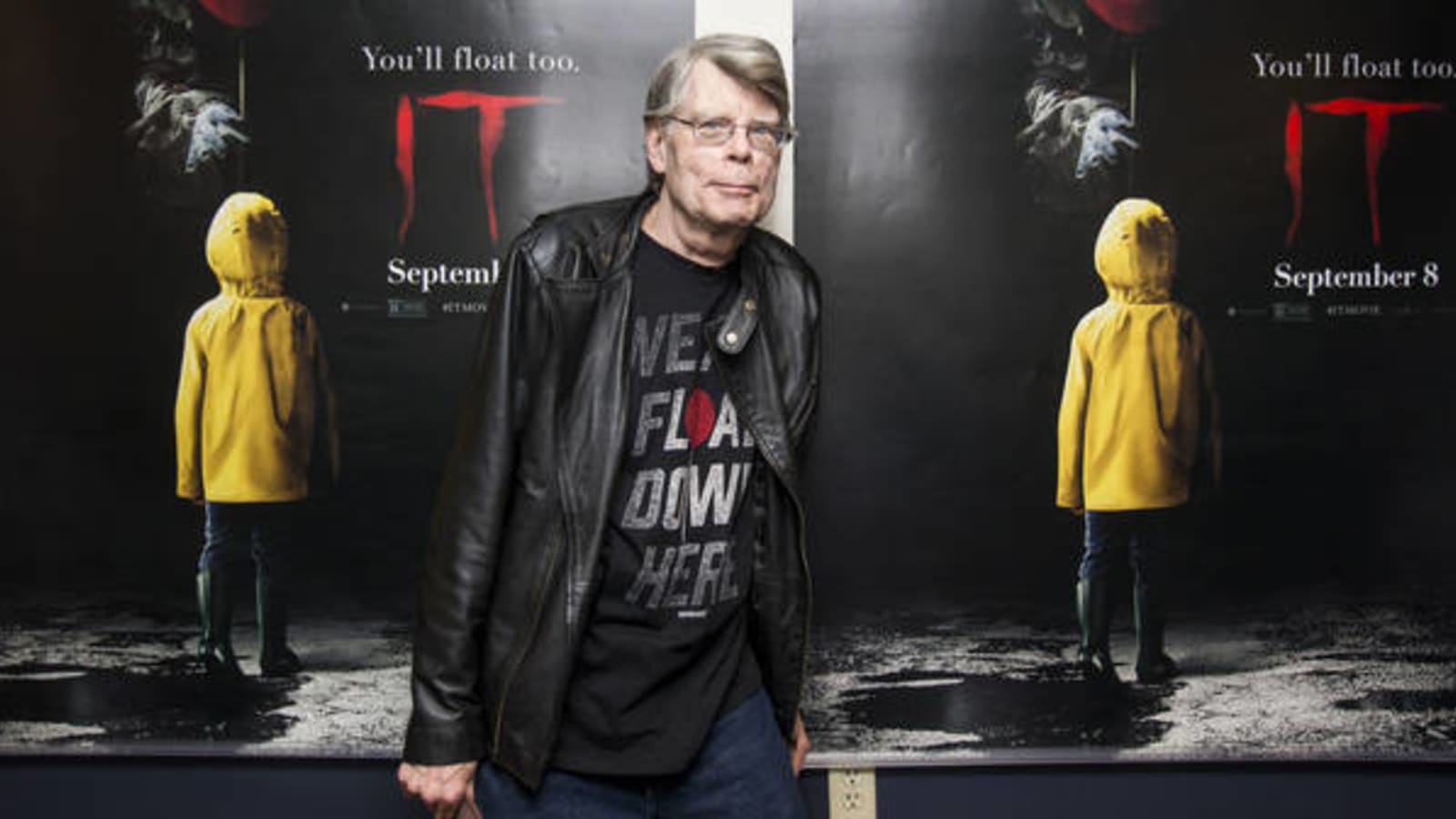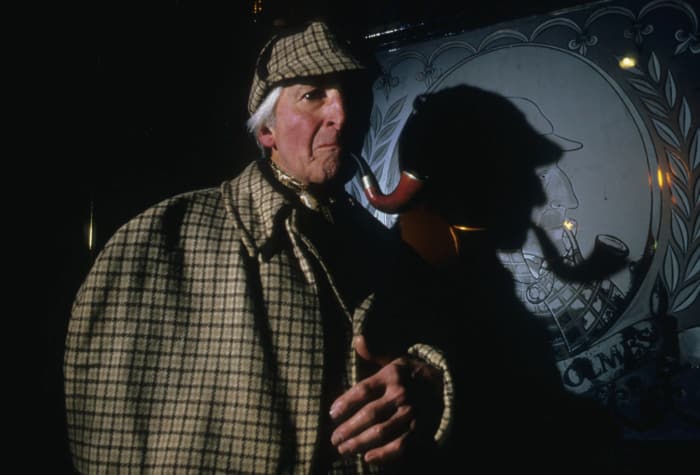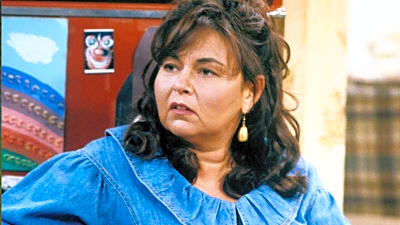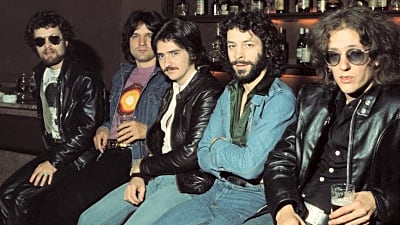In 1899, motion picture pioneer George Méliès produced a film based on the Brothers Grimm fairy tale "Cinderella." It was the first literary adaptation in the medium's history, beginning a tradition that has provided Hollywood with some of its most memorable and successful films. While many of today's bestselling authors write with an eye toward adaptability (it's really good money for work you've already done), filmmakers still reach back to tried-and-true classics from the old masters.
With National Book Lovers Day's on Aug. 9, we wondered: Who are the most adapted authors of all time? Take a moment to think about it, and get ready to be surprised that John Grisham doesn't crack the top 25. (Playwrights are excluded because their work translates too easily. So beat it, Shakespeare!)
Chris Ware/Keystone Features/Getty Images
Factor in television and film, and it’s not even close: Charles Dickens is the most adapted novelist in visual media. “A Christmas Carol” alone has gone before cameras over 50 times — and that’s not counting all of the television shows that appropriated its redemptive narrative for a Christmas episode. “Oliver Twist," "A Tale of Two Cities” and “Great Expectations” have also been frequently adapted, often as prestige productions by top filmmakers directing A-list casts. Or Muppets.
Sunset Boulevard/Corbis via Getty Images
Alexandre Dumas is the only author who can challenge Charles Dickens for most adaptations. Since 1903, there have been over 100 movies or TV productions of Dumas’ “The Three Musketeers," “The Count of Monte Cristo” and “The Man in the Iron Mask.” Though his high adventures were written in the 18th century, their epic sweep translates well to cinema.
EMI Film Distributors/Paramount/Sunset Boulevard/Corbis via Getty Images
Agatha Christie was the master of the detective novel, and she proved it over and over again throughout her prolific career. She wrote 66 mystery novels in total, and most of them have been adapted for film, television, radio, the stage…even video games! Her two most famous sleuths, Hercule Poirot and Miss Marple, take center stage in the majority of these yarns. Her most celebrated work, “And Then There Were None,” also set the template for the not-so-celebrated modern slasher film (via “Friday the 13th”).
4 of 25
Fyodor Dostoyevsky
Metro-Goldwyn-Mayer/Getty Images
In the clash of the Russian literary titans, Fyodor Dostoyevsky just nudges out his contemporary Leo Tolstoy with over 175 adaptations. “Crime and Punishment,” “The Brothers Karamazov,” “The Idiot” and “The Gambler” are the most popular titles in his bibliography, but Soviet Union-era Russian filmmakers mined his less well-known works for dozens of movies you will likely never see.
Keith Hamshere/Getty Images
At well over 1,000 pages, “War and Peace” is one of the more daunting tomes in the pantheon of great novels, but it’s hugely rewarding if you carve out the time to read it. If, however, that’s too much to ask, you’ve got your choice of two star-studded BBC miniseries to give you the gist of the story. The far more manageable (at a shade over 800 pages) “Anna Karenina” accounts for the bulk of Tolstoy adaptations with a current count of 18 movies or miniseries.
Universal History Archive/Getty Images
America’s greatest humorist is best known for “The Adventures of Huckleberry Finn” and “The Adventures of Tom Sawyer,” but it’s the time traveling adventure “A Connecticut Yankee in King Arthur’s Court” that’s proved most adaptable over the years. If you’re wondering why you haven’t heard of these myriad adaptations, perhaps you remember “Unidentified Flying Oddball,” “Army of Darkness," “Black Knight” or “A Kid in King Arthur’s Court,” all variations on Twain’s story.
7 of 25
Robert Louis Stevenson
Bettman/Getty Images
There have been over 200 movies based on the 12 published novels of Robert Louis Stevenson, and the vast majority of them are drawn from his groundbreaking horror yarn “Strange Case of Dr. Jekyll and Mr. Hyde.” But “Kidnapped” and “Treasure Island” (Hi there again, Muppets!) are well-represented throughout film and television history as well. We’re probably due for new takes on all three.
8 of 25
Arthur Conan Doyle
Georges De Keerle/Getty Images
It’s elementary that any list of frequently adapted authors would include Arthur Conan Doyle. The creator of Sherlock Holmes has spawned well over 200 movies and television programs, and that number will continue to increase as long as movies and TV exist. (At present, there are at least two Holmes-inspired series running in the U.S. and Great Britain.) Doyle also wrote a series of novels featuring the adventurer Professor Challenger, including 1925’s silent classic “The Lost World,” which included revolutionary special effects from “King Kong” wizard Willis O’Brien.
Universal Pictures/Sunset Boulevard/Corbis via Getty Images
The novels of Victor Hugo have been a sanctuary for cinema since the birth of the medium, primarily his tale of the lovelorn Quasimodo in “The Hunchback of Notre Dame.” That book was first adapted in 1923 by Lon Chaney, then again in 1939 with Charles Laughton and is now beloved by a new generation thanks to the Disney animated film. Hugo’s “Les Miserables” has also proved popular over the years. Maybe one day they’ll make a decent movie out of the musical.
Georges Méliès’ groundbreaking 1902 silent film, “A Trip to the Moon,” was partially inspired by Jules Verne’s “From the Earth to the Moon.” Since then, movies and television have looked to the pioneering writer’s science-based adventures for transporting tales of wonder. “20,000 Leagues Under the Sea,” “Around the World in 80 Days” and “Journey to the Center of the Earth” are his most notable novels and have proved especially popular on TV. Also worth noting is, according to “Back to the Future Part III,” he’s Doc Brown’s favorite author!
11 of 25
Cornell Woolrich
Paramount/Getty Images
Raymond Chandler and Dashiell Hammett may have been the more critically acclaimed mystery writers, but the prolific Cornell Woolrich has them beat when it comes to adaptations. His novels and stories were particularly popular during the 1940s and ‘50s heyday of film noir. But it was his decidedly un-noirish tale of an injured photographer who believes he’s witnessed a murder that brought him his biggest film success. Perhaps you’ve heard of Alfred Hitchcock’s “Rear Window?”
12 of 25
W. Somerset Maugham
John Springer Collection/CORBIS/Corbis via Getty Images
Maugham was one of the most popular novelists of the first-half of the 20th century, so it was only natural Hollywood would seek to capitalize on his success. The 1934 take on “Of Human Bondage” turned Bette Davis into a movie star, and his stories have frequently provided great actresses with Academy Award-nominated roles (e.g. Davis for 1940’s “The Letter,” Anne Baxter for 1946’s “The Razor’s Edge” and Annette Bening for 2004’s “Being Julia”). Bill Murray gave his first-ever dramatic performance in a 1984 remake of “The Razor’s Edge.”
Jean Marie Leroy/Sygma/Sygma via Getty Images
French mystery writer Georges Simenon wrote somewhere in the neighborhood of 500 novels, so the law of averages dictates that he’d make this list. His detective character Commissaire Maigret appears in the majority of these movies, but the best Simenon adaptations — e.g. Patrice Leconte’s “Monsieur Hire” and Cedric Kahn’s “Red Lights” — have strayed from the mystery formula. If you’re asking “Simenon who?” you need to watch more French films.
14 of 25
Miguel de Cervantes
Mondadori Portfolio via Getty Images
Cervantes’ “Don Quixote” is considered the first great novel, and it has formed the basis of over 100 movies and television productions (a number that rose by one when Terry Gilliam finally got his long-thwarted “The Man Who Killed Don Quixote” off the ground at this year's Cannes Film Festival). The man who tilts at windmills is the hero of the musical “Man of La Mancha” (turned into a not-so-great film starring Peter O’Toole in 1972) and is the patron saint of noble fools in countless films not directly based on Cervantes’ book.
Silver Screen Collection/Getty Images
Baum is an interesting case because the majority of films and television programs based on his work are not direct adaptations. Aside from 1939’s “The Wizard of Oz,” nearly all Baum-inspired works have either riffed on his 14 “Oz” novels or used his characters in completely new adventures. There’s the musical “The Wiz," the unofficial sequel “Return to Oz” (based on two later “Oz” books) and TV series like “Tin Man” or “Emerald City”. For fantasy storytellers, Oz remains a hot destination!
Murray Close/Sygma/Sygma via Getty Images
There were actually 19 Barrie-based silent films (starting with 1913’s “The Little Minister”) before Paramount took the first crack at “Peter Pan” in 1924. There have been many trips to Neverland since then (including Steven Spielberg’s 1991 yuppie apologia “Hook” and Joe Wright’s bizarre 2015 reimaging “Pan”), but until recently there were just as many adaptations of Barrie’s other children’s stories. Nowadays, however, it’s all about the scamp who’ll never grow old.
American International Pictures/Sunset Boulevard/Corbis via Getty Images
The first film based on an H.P. Lovecraft story didn’t arrive until 1963 with Roger Corman’s “The Haunted Palace” starring Vincent Price. The horror author’s popularity didn’t soar until Stuart Gordon unleashed his darkly hilarious “Re-Animator” in 1 985. Suddenly, everyone wanted a crack at Lovecraft’s macabre tales — which was totally doable given that they were mostly in the public domain. Lovecraft’s most ambitious work centers on a malevolent cosmic force known as Cthulhu. His masterpiece, “At the Mountains of Madness,” was nearly made into a film by Guillermo del Toro in 2011 starring Tom Cruise. Alas, Universal Studios backed out because they didn’t believe an R-rated horror film could gross over $100 million. Perhaps they feel differently now.
The British-born “King of Thrillers” had been adapted over 20 times before he began writing screenplays himself in the late 1920s. He was a wildly successful author, madly prolific (he could allegedly bang out a 70,000-word novel in three days) and, as a result, reviled by some of his contemporaries. He was about to achieve a new level of success as the co-creator of a fella named King Kong when he passed away in 1932 due to complications from diabetes. There have been many sequels and remakes of “King Kong” over the years, but Wallace’s J.G. Reeder series and “The Green Archer” have been adapted far more often.
As one of the founding fathers of science fiction, H.G. Wells has inspired just as many filmmakers as he has films. His “The Invisible Man” became one of Universal’s most popular monsters in the 1930s and tentatively is set for a reboot in 2020 as part of the studio’s “Dark Universe” franchise. Wells also penned “The Time Machine,” “The Island of Doctor Moreau” and “The War of the Worlds,” all of which have remained relevant as humankind continues to meddle in things that are best left alone.
Warner Brothers/Getty Images
The youngest writer on this list currently has 204 finished films and television shows to his credit, but they’re not all adaptations. As is the case with most modern pulp writers, Stephen King has written original screenplays and episodic TV over the last 40 years. He’s the only author in this group who has actually directed an adaptation of his own work (with the very special “Maximum Overdrive”). With the runaway success of this year’s “It,” new versions of “The Shining,” “The Stand” and “Pet Sematary” seem all but certain. And don’t forget the recently debuted Hulu series “Castle Rock,” a new story that takes place in the established King universe.
Hulton Archive/Getty Images
Quoth the Raven, “Ever more adaptations!” The 19th century master of the macabre is also credited with inventing detective fiction — which leaves a great many authors on this list in his debt. Some 108 years after the first film adaptation of “The Pit and the Pendulum,” the author’s stories and poems are still grist for chilling movies and television — though no one has topped Roger Corman’s Poe run in the 1960s. (It’s hard to read Poe without hearing Vincent Price’s blood-curdling voice.)
Hulton Archive/Getty Images
It shouldn’t come as a shock that the short-story author renowned for his surprise endings would be credited with close to 250 movies and television shows. O. Henry’s “The Gift of the Magi” is a classic Christmas tale, and “The Ransom of Red Chief” is responsible for just about every crime movie that features hostages bonding with their kidnappers (and, in some cases, turning the tables on them). O. Henry also created the heroic caballero "The Cisco Kid," who has appeared in numerous serials and movies since the silent film era.
Liaison Agency via Getty Images
The brilliant writer and social critic didn’t live to see her work properly appreciated by readers and literary critics, and oddly, it took some time for movies and television to discover the wealth of drama and comedy contained in her seven novels. Aside from the 1940 adaptation of “Pride and Prejudice” starring Greer Garson and Laurence Olivier, it wasn’t until the BBC got a hold of Austen’s work in the 1950s that the author became popular with 20th century audiences. The major turning point in terms of global recognition came in 1995 with Ang Lee’s “Sense and Sensibility” (starring Emma Thompson, Hugh Grant and Kate Winslet) and Amy Heckerling’s “Emma” riff “Clueless,” which made Alicia Silverstone a star.
“The Diamond Smugglers.” That’s the title of the only unfilmed Ian Fleming novel. Every other book has been turned into a James Bond movie over the last 55 years. (This includes most of his short stories as well.) His children’s novel, “Chitty Chitty Bang Bang” also became a movie, which leaves the aforementioned tome and his nonfiction travelogue, “Thrilling Cities,” as his only unadapted works. He might be the most thoroughly adapted author of the 20th century.
If you had to guess which living author not named Stephen King has the most film adaptations, you’d be forgiven for guessing J.K. Rowling or John Grisham. They’re close, but as of today, Nicholas Sparks is the reigning champ with 11 movies. His run started in 1999 with the maudlin “Message in a Bottle” and in terms of box office and critical acceptance, peaked five years later with “The Notebook.” His books have niche appeal, but that niche might be narrowing: The three lowest grossing Sparks adaptations are the most recent.

 +
+
































